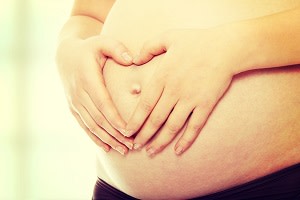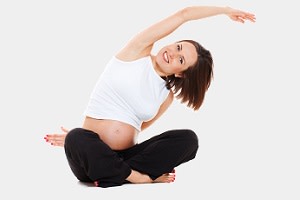Proudly part of the City Fertility Network
Proudly part of the City Fertility Network
 The body undergoes many changes during the first 12 weeks of pregnancy (the first trimester). Some changes may be quite obvious, while others are more subtle.
The body undergoes many changes during the first 12 weeks of pregnancy (the first trimester). Some changes may be quite obvious, while others are more subtle.
Sometimes, early signs of pregnancy can be confusing. This is because many of the early physical signs (swollen tender breasts, feeling tired, cramping and/or pelvic pain, feeling bloated) can be similar to normal pre-menstrual signs. It can be even more confusing in the early days if there is an “implantation bleed” and/or light bleeds, or “spotting” during the first few weeks. These are often mistaken for normal periods.
It is common to feel unsure about what is “normal” during early pregnancy and anything that feels unfamiliar can often cause concern about your health or the baby’s. Some individuals also become concerned if they don’t experience any of the “typical” pregnancy signs and symptoms like morning sickness and feeling overly tired. Not feeling these things can also be very normal. Everyone’s body will react differently to being pregnant. For example, some people will experience morning sickness but have plenty of energy, while others will have no morning sickness but feel extremely tired.
 Being pregnant can be both mentally and physically demanding. Regular exercise can help you cope with these demands and prepare you for labour (Clapp et al 2002; Berk 2004; Hatch et al 1998). Some of the common pregnancy niggles, such as backache, constipation and fatigue, will be easier to keep at bay, too. Exercise is also great for relieving stress.
Being pregnant can be both mentally and physically demanding. Regular exercise can help you cope with these demands and prepare you for labour (Clapp et al 2002; Berk 2004; Hatch et al 1998). Some of the common pregnancy niggles, such as backache, constipation and fatigue, will be easier to keep at bay, too. Exercise is also great for relieving stress.
Maintaining a healthy level of fitness is all part of staying well during pregnancy and will also help to keep control of your weight gain. It can also help improve your general mood and self-image, along with assisting in the prevention of some pregnancy conditions like pre-eclampsia and gestational diabetes. If you have difficulty sleeping at night, you may also find that a workout during the day helps.
The benefits of exercising throughout your pregnancy will continue after your baby is born, making it easier for you to get back into shape (Clapp et al 2002). As long as you don’t overdo it, walking, jogging, swimming, water aerobics classes and cycling on an exercise bike are all considered good, safe forms of exercise. Yoga and Pilates are also very good but please ensure you find a registered, qualified teacher who is experienced in dealing with pregnant individuals.
Generally speaking, any activity where you could be thrown off-balance or fall over is not a good idea. Ball sports are also risky because you may be hit in the stomach. Be guided by your antenatal care provider if you are uncertain.
Even if you already consider that you have a healthy diet, there are some important things to keep in mind now that you are ‘eating for two’. As most of us already know, fresh is best and getting more fruit and vegetables into your diet is one of the best ways to increase your intake of vitamins and minerals.
In order to meet nutritional requirements, eat healthy, fresh and unprocessed foods, particularly lots of vegetables, along with red and white meat, seafood, dairy products and cereals. If you eat a vegetarian diet, ensure you’re getting enough iron and other nutrients from other dietary sources.
Vitamins and minerals essential for you and baby include: vitamins A, B, C, D and E, calcium, folic acid, omega 3, protein, iron, zinc and iodine.
There are some foods not to eat during pregnancy as they can potentially cause problems during pregnancy and throughout your child’s life: